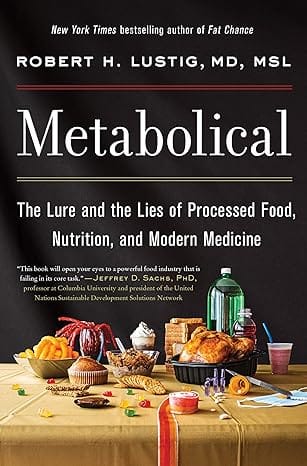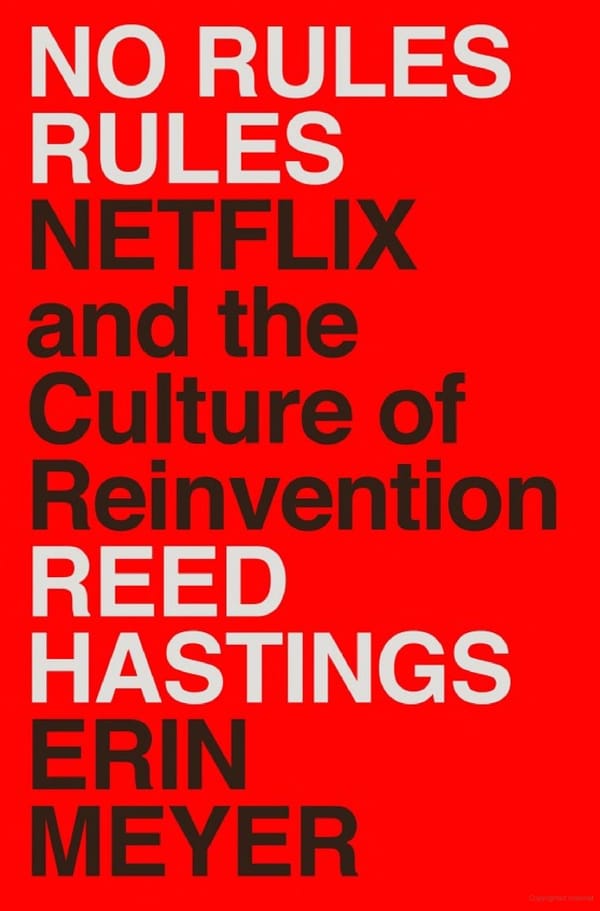Having (and Raising) Kids
The identity of being a parent is one of the deepest ones many people have. In this post I cover the decision to have kids, how to expect the first one, and how to think about raising kids.
Editorial note: In this post, I combine the 3 most common questions I get about kids 1) how to think about whether or not to have them 2) how to prepare for your first and 3) how to think about raising them. I’m still learning on all 3 fronts, so please share feedback.
I’m borrowing the title here from the excellent Paul Graham article. I am sometimes surprised by how often I am asked my thoughts on this topic, so I hope to put this into writing here. Please note that I have limited years of experience in this field and that you can expect many edits over time! There’s an appendix with situational observations from Good Inside with my commentary.
Part 1: Decision to Have Kids
You’re thinking about having kids – it’s one of the most important decisions you will make. I strongly endorse all of the insights in Paul Graham’s article linked above. It is a ton of work and your life will change more than anything else you could do.
One thing I really want to highlight: there are so many good times that are private. If you’re not sure and some of your peers have had kids and can no longer drop everything to go out, or go to a game, and so on – yes this is a real cost. But the most interesting part of it all is this is a cost that you’re fine with.
I’ve seen the term “DINK” (double-income, no-kids) as a recent “trend.” I’m not a fan of it but I understand where it comes from. I suspect this is an extension of the Instagram inspired culture of FOMO (and maybe a deeper fear of loss of freedom). It’s also a sign of how expensive things have become. And kids are very expensive to raise today.
I’ve also heard the argument that one should not have kids because they consume resources like all humans, and that’s bad for the environment. My response is that if you are so profoundly pessimistic about the impact your kids, raised with your values, will have on the world then perhaps you are making the right choice. I fear though that this is instead a rationalization that avoids making a scary choice.
My personal conclusion is that raising kids is one of the most important things you can do. Your priors (general assumptions) should probably be set towards having kids. One of the podcasts I listen to when I have extra time is Invest Like the Best. In that podcast, the host has a concluding question, “What’s the kindest thing anyone has ever done for you?” Many new parents often say that their parents raising them was the kindest thing. From How Will You Measure Your Life this is likely to be the deepest source of meaning.
Whether or not to have kids? I can’t answer this for you but at least I hope I’ve given you a way to think about it.
Part 2: First Kid Coming – What to Expect
If you made the decision and are fortunate enough to be expecting–congrats! How do you get ready for something that you’ve never done before? Try to learn from others (books, friends, relatives, coworkers) and design what you can in your life to be ready for day 1.
Matt Bell has an excellent post on parenthood, which I recommend as well. His principles are 1) get help 2) think family 3) follow evidence and 4) improve processes. All great advice!
My favorite books that I came across were The New Father by Armin Brott and Brain Rules for Baby by John Medina. I did not read Cribsheet by Emily Oster but I am a big fan of her work and think that this book is likely excellent.
Similar to Bell’s advice, you need to be thinking about the entire family and not just the baby. Do you have a way for you and your partner to get enough sleep (hiring, shifts, taking the right amount of time off from work, etc)? Have you worked through the financial implications? I’d recommend building some buffers in and try to budget for many unexpected expenses. Also, Amazon Prime is an absolute lifesaver.
Spend money to save time, especially to make time for you and your partner without the baby. It’s so easy to let this go in the mad scramble. Both of you are going through enormous change and investing in your relationship is incredibly important when that happens.
Hold them a lot. I think I got >1000 hours of use out of the carrier for each of them in their first year. This allowed my hands to be free (and save my poor arms) while still physically making myself present and close to them. As a side effect, I don’t know that either of them ever learned to nap in the crib when I was with them. I really miss those naps they would take on my chest/belly! Like so much else in parenting, you never know when the last time will be. The last time they both slept in my carrier was just another nap, and I didn’t appreciate it for what it was.
Be ready for your priorities to shift. My wife and I look back at photos from before our kids – we recognize those people, but they are not us. Similar to the question first posed in this section–how do you get ready for the shift in your personality? In this case I’m not sure you can. Parenthood is a deeply personal transformation so my more general perspective is to just be ready for things to change.
After getting through that transition, you will naturally shift your focus towards how to best raise your kids.
Part 3: Raising Kids [WIP]
I think the most important thing to do after keeping them safe is to impart your values. You do this best by your example and telling stories to reinforce those values. There’s no great shortcut for being there when it matters (when there’s an opportunity for a lesson). For tactical situations, you can refer to the appendix of this post.
Before getting into details, I want to offer the disclaimer: every kid is different. Be ready to adapt and be pragmatic in what’s working. They also change – their needs are very different depending on their age.
The book Good Inside by Becky Kennedy offers a lot of great advice in thinking about parenting. In it, she suggests:
- Parents have 2 main jobs: setting boundaries and validating emotions
- Boundaries are the actions you take (not requests) and an important part of this is to carry through with your threats. That is, to actually set the boundary that you say you will.
- Kids want to feel meaning and purpose. Encourage them to contribute to the family because it’s the right thing to do, not because they’re paid an allowance.
- Validation and empathy is meant to acknowledge feelings, not reject them. Sometimes you may be tempted to say something like “there’s no reason to be sad.” This is the wrong approach–instead offer “you’re feeling sad and I get that.” Part of the job of kids is to learn to understand and manage their emotions. But to get started, they need validation of those emotions.
- If you have an argument, take the time to “repair.” When tempers cool, share reflections and state what you would do differently next time.
- Don’t aim for fairness. Fairness turns competition into one about scarcity, and moves away from what each kid needs. For example, don’t buy new shoes for both kids together. Buy them when their feet outgrow their current shoes.
- Insert (good) frustration into their lives. There’s so much instant gratification today, especially with smartphones, that kids are missing the chance to build resilience. Similarly, Kennedy argues that entitlement results from a fear of frustration. Your aim as a parent should be to build resilience, and in the long run this will support a better life lived.
- Try to build the identity of being a good learner (not “smart”). This sets up your kids to have a growth mindset. I know that it’s popular to point out that these studies don’t replicate and so on, but there’s no study to my knowledge that has had the scale of intervention that a parent could apply over years of deliberate effort as a core value.
There’s more in the book, but those above jumped out at me. In addition, here are a set of things I believe about parenting:
- Prepare your child for the road, not the road for your child. I recently heard of college kids having playdates arranged by their parents. I’m sure this is not the norm (look at the source) but it’s an extreme manifestation of not giving your child any agency.
- Don’t let them become something you resent. If you tolerate something that mildly bothers you, you will put yourself at risk of resenting your child later. You need to stop that early.
- Don’t use absolutes. For example it’s not “good school” but “good school for my child". This applies to a lot of life and puts you in a more adaptive mindset when you think about your kids.
- Kids have an instinct to be helpful. When they first want to help, it’ll take a lot longer with their help than not (appreciate it). You should invest in that part of their identity: a contributor first to the family and then to the world. It can be so tempting to just get that chore done faster, but you are better off investing that time in building their character.
- Parents should try to create situations that help kids grow. These situations should be achievement oriented and at the edge of the child’s comfort zone. It’s ok that they fail sometimes. This level of frustration and challenge will build character. This is how they will build that confidence, resilience, and agency later in life.
Find ways to stay in the moment and appreciate them for who they are, at all stages – it goes by so quickly. I’m reminded of this post that estimates that through high school, the author had spent 93% of his lifetime time with his parents. While I hear about how busy parents are, it is also for a relatively short, compressed, and front-loaded time. The shift to making your life about more than just you is one of the most profound things you can do. Enjoy it.
Appendix:
If you’re intrigued but unsure about Good Inside, let me share some examples that I found interesting. These are roughly conditional actions you can take for various scenarios. Again, I recommend the book because there are many more that could be helpful to you (I plan to revisit the chapter around adolescence when appropriate, for example).
First here are a set of scenarios borrowed from chapter 4 to more clearly illustrate this approach.
Behavior: A child is crying when his parent drops him off at school.
- Parent Response #1: “Stop being such a baby!”
- Parent Response #2: “It’s hard to say goodbye today. I get that. Some days are like that. I know you’re safe here at school and we both know that Papa always comes back. I’ll see you at pickup.”
Behavior: A child is tantruming about wanting ice cream for breakfast.
- Parent Response #1: “I won’t talk to you while you have a fit. Go to your room and come out when you’re being reasonable!”
- Parent Response #2: “I know, sweetie. You wish you could have ice cream for breakfast. That’s not an option right now. You’re allowed to be upset about it.”
Behavior: A child is hesitant to join a birthday party, clinging to his mom.
- Parent Response #1: “You know everyone here. Come on! There’s nothing to be worried about!”
- Parent Response #2: “Something about this feels tricky. I believe you. Take your time. You’ll know when you’re ready.”
It’s probably obvious by now that you’re supposed to go with response 2. The chapter itself has the attachment “lesson” or implication that your child takes based on which response you give them. It’s insightful and resonates because I definitely make “response 1” mistakes from time to time. Even worse, I didn’t have a principled way of thinking about which response I should be doing until I read this.
I also pulled out a set of quotes that you can use when validating:
“You were right to notice that.” “That sounds really hard.” “That stinks. It really does.” “I’m so glad you’re talking to me about this.” “I believe you.” “Being a kid right now . . . ugh, it feels so so hard. I get that.” “You’re really sad about that. You’re allowed to be, sweetie.” “I’m right here with you. I’m so glad we’re together talking about this.”
My initial attempts at using this have been clumsy enough that my wife observed “you sound like a psychiatrist.” It still seems to help so far.
One tactical thing that has actually worked surprisingly well:
“Did I Ever Tell You About the Time . . . ?”
In implementing this, don’t go necessarily for a quick resolution or solution. It’s fine to have your problem not resolved immediately – in fact that is an important part of building resilience. I’ve found this to be disproportionately effective in helping when my kids are upset.
This is how you effectively set a boundary. Use the phrase “I won’t let you.”
Say this aloud: “You can’t throw water bottles!” and “Please stop throwing! Please!” Then pause. Take a breath. Now try this one: “I won’t let you throw water bottles.” These four words—“I won’t let you”—are critical for every parent’s toolbox.
A more detailed note on fairness:
Instead of making things equal (“You’ll get new shoes soon!”), label what’s happening inside your child: “It’s so hard to see your brother get new shoes. Can you get new ones? Not right now, sweetie. In this family, every kid gets what they need—and your shoes are still in great shape. You’re allowed to be upset. I get it.”
When your emotions spike, here’s a suggestion:
Now, I know I need a deep breath.” Take a few deep breaths to allow your children to “borrow” your regulation. “Hmm, two kids, one truck! That is so tricky. I wonder what we can do? I wonder if I have any problem-solvers here . . .” Then pause. Remind yourself, your job is to slow down the situation so your kids can regulate their bodies and have access to their own problem-solving skills; your job isn’t to solve this as quickly as possible. Here, you’re helping your children learn the process that leads to problem-solving; when we fix things for our kids, we just lock them into needing us to problem-solve, and this becomes frustrating to everyone.
I’ve also found humor to be unreasonably effective in defusing negative emotions (for one it’s clearly silly things):
When we respond to a whine with silliness or humor, we offer what a child needs the most: connection and hopefulness, both of which are present in lighthearted moments.
I didn’t have this framework in mind, but I have experienced success with this type of approach for hesitancy:
Here’s a powerful phrase to use with your kids: “You’ll know when you’re ready to ___.” This communicates that you trust your child, which will teach them to trust themself, and self-trust is the essence of confidence. But this phrase also suggests the idea of movement—it implies that your kid will be more comfortable eventually.
And if you’re just plain unsure about what to do, maybe you can follow this script:
“There’s Something About . . .” Sometimes we don’t know what is happening for our child—we might see that he is upset but we have no clue what’s going on or why he’s unhappy.
Additional Resources:
- Having Kids by Paul Graham
- The New Father by Armin Brott
- Brain Rules for Baby by John Medina
- Good Inside by Becky Kennedy
- Something by Emily Oster
If I’m missing your favorite book or author, I will note that there is a cottage industry (or maybe larger-than-cottage) for parenting advice. Eventually you’ll find something that resonates for you.



